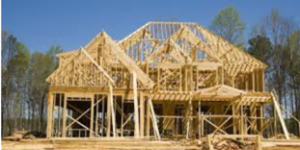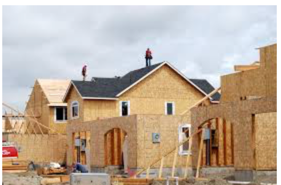What is Construction Defects Law?
One of the most long-term and expensive investments the majority of people will make in a lifetime is buying a home. Therefore, it’s essential that you know when to seek out legal action for construction defects.
Unfortunately, construction defects are not uncommon, as building a house is a massive project that involves multiple parties. In the best-case scenario, just speaking to the contractor or builder to explain the defect will rectify the issue.
However, sometimes the homeowner may need legal representation, especially when health hazards such as mold are present. A construction defect will also lower your home’s value and undermine your investment, so it’s important that these defects are corrected.
Construction defects may be established by using defective materials, the actual workmanship that was done on the house or even a faulty design. It’s important to make the distinction and know exactly what caused the construction defect, as this will help you decide the party that is liable for the given deficiency. A housing and construction defects lawyer will assist the homeowner in all events and faulty parties, helping the owner resolve the issue.
Important Terminology
- Contactor: He who one contracts to provide supplies or perform work, one who is contracted to erect buildings.
- Volatile Organic Compounds (VOCs): VOCs are toxins that are released by some strains of mold, possibly causing health problems such as respiratory issues.
Types of Construction Defects
Homeowners may come across various kinds of construction defects in their new home. Some construction defects aren’t discoverable until a few years after the home has been constructed, like an unstable foundation which will slowly unbalance the house over time. Some of the most common construction defects include defective electrical or heating systems, water leakage, dry rot and mold proliferation in interior walls.
Typical material defects involve deteriorating flashing, problems with low-quality drywall, cracked or faulty windows, and other shoddy materials used in moist or damp areas. Material defects are also a result of an insufficient or defective design. Even homes that have been well constructed and using the highest-quality construction materials can be prone to architectural errors such as insufficient structural support.
A construction attorney can assist you in resolving the construction defect if one or more of the individuals or businesses involved in the manufacturing, sourcing or design of materials are the responsible parties.
Toxic Mold
A construction defect that is substantially problematic is toxic mold, as it releases volatile organic compounds (VOCs) that are possible causes for serious health issues, including headaches, symptoms resembling the flu, allergies, asthma, severe respiratory problems and other illnesses. To possibly cause all sorts of diseases to the occupants and residents of the home, only a few strains of mold are needed. Toxic mold tends to flourish in homes that have faulty materials or inadequate ventilation.
It’s very likely that you could have a valid injury claim against any number of involved individuals, including engineers, architects, material suppliers, manufacturers, and contractors or subcontractors if you or someone in your family has become ill due to toxic mold. You could even have a claim against the previous owners if they did not disclose the house contained toxic mold strains.
Are you in need of legal advice? Please get in touch with us and we’d be more than happy to discuss your options.

